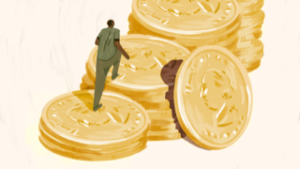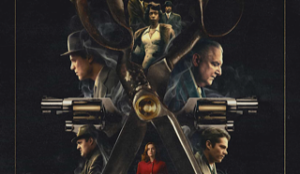Why You Should Have a Piano

When I was growing up, a big house with a Cadillac in the driveway was the ultimate status symbol. Inside the house, it was a living room that no one ever sat in, with a grand piano in the corner.
We Fords lived in a small, dilapidated house with a rusted station wagon in the driveway. The only status symbols we had were books – handsome hardbound books piled everywhere, including a stack that served as a leg of the dining room table.
We never had a piano. But I wanted one. Not so much to play as to have. I needed the sort of validation it offered. And so, I was determined to get one… one day.
That day arrived in the mid 1980s. I’d become a junior partner in the publishing company I worked for, and K and I had just moved into the house of our dreams. A house with a nice-sized living room that could accommodate a medium-sized grand piano. (And that same piano sits in our “music room” today.)
But having a piano wasn’t enough in my mind. I wanted it to be played. Not by K or by me, necessarily, but by someone.
My siblings and I were required to play musical instruments when we were in grade school. One of the girls played the flute. Another, the clarinet. My brother Andrew played the trumpet, which I thought was cool, almost as cool as the drums. I was hoping to play the drums. But when it came time for Sister Christine to assign me an instrument, the only thing left was a French horn. Not cool. But still…
So, K and I continued this tradition by having our kids take piano lessons when they were young. Two of them gave up on their instruments as soon as they were allowed. One became good enough to be accepted into NYU’s music department and then get a job in LA as a composer and arranger of music. When he and his family are in town for a visit, it’s a pleasure to see him, late at night, creating music on that old piano.
The piano still plays remarkably well. But it has lost some of its prestige since I bought it 40 years ago. Pianos are no longer de rigueur symbols of financial success. On the contrary, it’s rare to see one in a million-dollar home. You’re much more likely to see a 100-inch TV.
At its peak, there were more than 100 piano manufacturers making hundreds of pianos every day in the United States. Today, there are only two: Steinway and Mason & Hamlin.
In a recent issue of The Hustle, Zachary Crockett had an essay titled “How one of America’s last piano manufacturers stays alive.” It’s a fascinating story. Much more about economic and cultural changes in America than you might think. Read it here.


